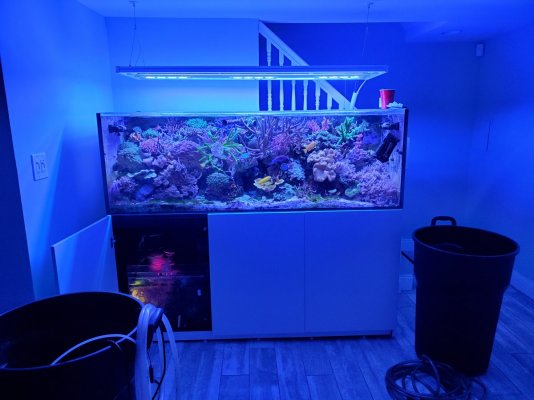- Joined
- Mar 27, 2019
- Messages
- 266
- Reaction score
- 231
I agree, there are MOSTLY success stories... However I just had a fellow reefer reach out to me yesterday with the same experience, different fluco brand, total annihilation... So, there must be SOMETHING that the fluco is interacting with, or a chain reaction it is setting off, that can occasionally cause a disaster...That is a solid clarification of the physical process by which this works. I believe it was @Jose Mayo who first figured this all out. Here is a piece of his writing from the main "Bryopsis Cure:" thread in post #4465.
"I reported the observation in the IPAq and began to research on the subject in order to understand why FLUCONAZOL had this effect and, not without some effort, I discovered that some PRIMITIVE ALGAE, among them Chlorophytes (glass algae), Derbésia , Bryopsis, Caulerpa, Codó, Halimeda and Ulva lactuca (sea lettuce), contained in their cell walls a structural lipid (fat) called ERGOSTEROL, also present in the cell walls of ALL FUNGI and which is precisely the target of attack of FLUCONAZOL , whose mechanism of action is, precisely, to block the enzymes that work in the elaboration of this lipid. Without ERGOSTEROL, the cell wall of the species containing it is weakened, and the organism, thus having diminished defenses, yields to the environment and dies. In ANIMALS IN GENERAL, from protozoan to whale, the predominant mebran lipid is CHOLESTEROL and that FLUCONAZOL does not block. The structural lipid of ZOOXANTHELAS is DINOSTEROL, which is also not blocked by FLUCONAZOL."
I feel like in these rare RTN events that it is an INDIRECT poisoning of the water. The fluconazole attacks something else in the system that in turn releases the toxin. Most of us don't have any or enough of that particular organism (fungi?) present in our systems to cause a reaction. But if you do it is game over.
If you read through a few hundred posts in that thread you will anecdotally discover 1:20 to 1:50 cases have a catastrophic outcome. I have not been able to discern any pattern to it. Maybe @Jose Mayo can speculate for us what we should be looking for to reduce the risk of such an outcome.
I wish I knew of a way to mitigate this risk, but elements such as carbon would obviously remove the fluco at the same rate as the potential "toxins" as you're possible eluding to? Possibly things like zoas/palys release palytoxin or some other bacteria/fungus is impacted by the fluco leading to a poisoning event... The RTN ALMOST looked like a bacterial infection in the rate that it spread and the exponential growth from one obvious starting point. The tissue would fall off, about the size of a grain of rice, followed by massive exponential growth over the whole coral in a matter of about two hours... It was CRAZY fast.
After adding carbon, polyfilter, cuprisorb and purigen plus doing 25% water changes every day, the RTN seemed to halt after about 4 days of the fluco administration. Now, there are a few corals with small dead spots, but the necrosis seems to have halted.
As a side-note, the Brightwell Restor does seem to help with the tissue recovery thus far, as I'm already seeing some visible progress in the damaged colonies that is slower than standard visible regrowth would be. Take that for what it is, but it's definitely not hurting.



















